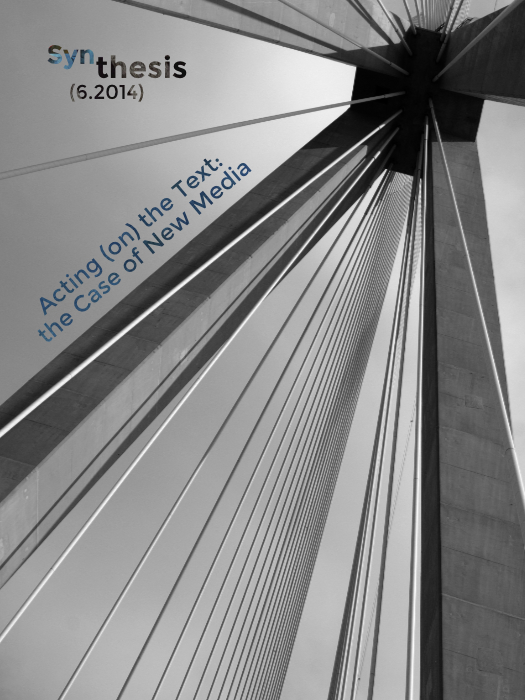How to Undo Things with Codes: New Writing Mechanisms and the Un/archivable Dis/appearing text

Abstract
The discourses of criticism are being transformed at the same time that our writing mechanisms are undergoing a major change. Reflecting on the relationship between our writing tools and our perceptions and taking programmability and interactivity as the main characteristics of new writing media, this essay attempts an approach to how that which is new in scriptural techniques, that is to say, programmability and interactivity, are undoing our perception of such notions as the archive and embodiment. The two works which are here commented contain the conditions of unwriting their written trace; the interactor who makes the text appear paradoxically also causes its disappearance by acts of destruction or dispersion. In the case of AGRIPPA (A Book of The Dead), William Gibson reserves for the reader the role of the destructor of the text through an extreme gesture of interaction which destines the work to erasure and calls for the retrieval of a text that contains the conditions of its own death. In the case of Garry Hill‘s Writing Corpora, the body‘s acts are created of, create and are turned against writing, they embody and disperse the writing traces, while the body experiences the shift from inscription to embodiment.
Article Details
- Section
- Articles

This work is licensed under a Creative Commons Attribution 4.0 International License.
The copyright for articles in this journal is retained by the author(s), with first publication rights granted to the journal. By virtue of their appearance in this open access journal, articles are free to use with proper attribution. Synthesis retains the worldwide right to reproduce, display, distribute, and use published articles in all formats and media, either separately or as part of collective works for the full term of copyright. This includes but is not limited to the right to publish articles in an issue of the Journal, copy and distribute individual reprints of the articles, authorize reproduction of articles in their entirety, and authorize reproduction and distribution of articles or abstracts thereof by means of computerized retrieval systems.



